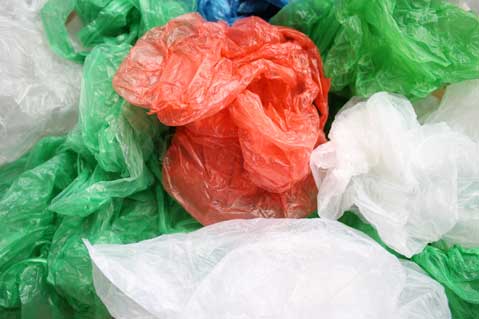Product Hub December 01, 2016
Boston Considers Bag Ban
At a meeting on Wednesday, Boston City Council members considered a proposal that would ban single-use plastic bags, while charging consumers at least five cents for all allowable bags provided by retailers. Originally put forward by Council President Michelle Wu and District 6 Councilor Matt O’Malley, the plan would allow Boston businesses to offer bags made of recyclable paper or compostable plastic that are at least 3 millimeters thick, or reusable bags such as non-woven totes. All would cost shoppers a fee of at least five cents when provided by the business.

The City Council first proposed the plan in the summer, and created the Plastic Bag Ordinance Task Force, led by O’Malley, to evaluate the plastic bag situation in Boston with what O’Malley called an “ecumenical approach” at the November 30 meeting. The task force conducted a survey of Bostonians, garnering 710 responses, in which half of respondents stated they bring their own reusable bags when shopping. Survey results also include the responses of 17 businesses, five of whom said they were against both a bag ban and fee.
“Paper bags are still not the most environmentally friendly option, though they are better,” O’Malley told the Boston Herald earlier this week. “Five cents is an incentive to bring a reusable bag.” He added that the ban would reduce the number of plastic bags that obstruct Boston’s single-stream recycling system, which comes to about 20 tons a month just from residential use, and argued that the necessary cleaning takes up employees’ time and costs taxpayers money.
Businesses not in compliance with the ordinance would face a $50 penalty for the first offense and $100 for each additional offense. While the proposal would allow stores and restaurants to apply for a one-year exemption, applicants must demonstrate a need for additional time to use up their existing bag inventory, a lack of available reasonable alternatives, or that the ban deprives someone of another protected right. The ban and fee would officially go into effect 12 months after passage.
At the November 30 meeting, O’Malley reiterated that the five-cent fee, which business owners can keep in order to offset the cost of providing bags, is reasonable as an incentive for encouraging consumers to bring their own shopping bags, while at the same time is not cost-prohibitive. He went on to cite other areas, including Seattle, Washington, D.C., and Ireland, that have had significant success in reducing waste via plastic bag bans.
Wu, who stated that she believes the proposal is “one of the best-researched ordinances brought before [the Council],” said they are looking to encourage businesses to offer reusable tote bags with logos, which would be an additional opportunity for the companies to advertise.
Meanwhile, opponents of the ban and fee feel they’re unfair to both consumers and businesses. “It’s really a new consumer tax we’re putting on folks,” Bill Rennie, vice president of the Massachusetts Retail Association, told the Boston Herald. “These are Band-Aids we feel are increasing costs.” He added that businesses are concerned the new ordinance would significantly decrease foot traffic.
“That’s the fear – consumers out there who get fed up and don’t like seeing things like this,” he said. “We don’t want to drive them to say, ‘I’ll just do all my shopping online’. Is this anti-consumer and counterproductive to the ‘Shop Local’ movement?”
O’Malley voiced his disagreement with Rennie’s reasoning at the November 30 meeting, arguing that consumers aren’t likely to spend money on shipping and handling fees for online purchases that are often much higher than the suggested fee.
Several areas surrounding Boston, including Cambridge and Brookline, have already adopted bag policies. At a public hearing in October, O’Malley stated that the end goal is a ban across Massachusetts. “You’re not going to see action on a statewide level until Boston acts,” he said at the time. The Council has expressed the desire for a vote to be held before the end of the year.
A spokeswoman for Boston Mayor Martin J. Walsh told the Herald he is still reviewing the proposal.
On Election Day in November, Californians voted to pass Proposition 67, which upheld the statewide plastic bag ban that went into effect in 2014. At the same time, voters said “No” to Proposition 65, which would have allocated all revenue from paper bag sales to a new Environmental Protection and Enhancement Fund managed by the state's Wildlife Conservation Fund. Instead, business owners are allowed to keep all profits from bag fees.

Product Hub
Find the latest in quality products, must-know trends and fresh ideas for upcoming end-buyer campaigns.
